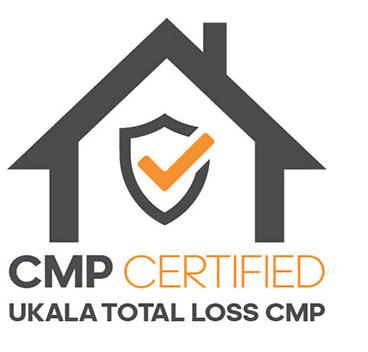Frequently asked questions
Here are some of the questions we are regularly asked. If you still have a question unanswered, please contact us.
- I am thinking of letting my residential property for the first time. Who do I need to inform?
- As a landlord, what am I responsible for?
- What is a tenancy agreement?
- What is the difference between GoHaven’s full management service and let-only?
- How long must an assured shorthold tenancy (AST) last?
- As a tenant, what is my bond for and how much will it be?
- As a tenant, what would I be responsible for?
- Why are references required?
- As a student, do I have to pay council tax?
- What happens if not all the residents are students?
- What do I need to do to reserve a student property I am interested in?
- What happens to my Deposit?
- What insurance do I need to have in place?
- As a landlord, am I liable to pay tax on my rental income received?
I am thinking of letting my residential property for the first time. Who do I need to inform?
- Your mortgage lender, if you have one
- Your freeholder, if the property is leasehold
- Your house insurance company
- Your own landlord if you are a tenant yourself
- The local planning and building department, if you are changing the use of the property or part of it, or you are altering the structure
- If you are going to let your property on a multiple occupation basis - several independent tenants sharing one property - then you may need to register your property with the local authority as a House in Multiple Occupation (HMO)
As a landlord, what am I responsible for?
- Repairs to the structure and exterior of the property, heating and hot water installations, basins, sinks, baths, toilet installations, pipes and service supplies to the property.
- The safety of gas and electricity installations and appliances
- General safety and fire safety of furnishings and furniture that you provide.
- Arranging and paying building insurance and your contents - not the tenants' contents.
For more details, please see our section: Keeping legal
What is a tenancy agreement?
A tenancy agreement is a legally binding contract between a landlord and tenant that sets out both the legal and contractual responsibilities and obligations of the two parties. It should be written in plain and intelligible language (no unnecessary jargon) and its terms and clauses should be fair and balanced, taking account of the respective positions of both parties and should not mislead about legal rights and responsibilities. We have our own legal tenancy agreements for use by our clients.
What is the difference between GoHaven’s full management service and let-only?
With our full management service we deal with all aspects of letting the tenancy for the course of the rental, including the initial advertising, arranging viewings, vetting prospective tenants, preparing tenancy documents, preparation of inventories, the collection of monthly rentals and electronically crediting by BACS to a designated bank account. Inspection visits are carried out on a periodic basis and a final inspection is carried out on vacation of a property to determine the return of the holding deposit paid by the tenant at the beginning of a tenancy.
Our let-only service includes the initial services outlined above up until the signing of tenancy documents and collection of the deposit and the first months rent. All matters relating to a tenancy thereafter and the collection of monthly rents will be the responsibility of the landlord.
For more information on our services, please click here.
How long must an assured shorthold tenancy (AST) last?
The AST is for a minimum of six months. You can agree that it lasts for a set term, for example six months or 12 months, or you can leave the term open-ended. Once the initial six-month period ends, you have the option of renewing a fixed term or allowing the tenancy to run on, on a periodic basis, this being the rent period - monthly or weekly.
As a tenant, what is my bond for and how much will it be?
A bond is an insurance against any damages to the landlord's property and for any unpaid bills and rent. The cost will depend on your prospective landlord's decision. By law, the bond amount cannot be more than two calendar months’ rent.
As a tenant, what would I be responsible for?
- Being honest and truthful in the tenancy application
- Paying a fair (market) rent
- Paying the rent as and when agreed
- Council tax and water/sewage charges (if this is not included in rental agreement with your landlord)
- Bills for gas, electricity, telephone and TV license (if this is not included in rental agreement with your landlord)
- Taking proper care of the property
- Arranging insurance for your own contents
Why are references required?
Employers’ references, landlords’ references and credit checks are made to ensure that the tenancy applicant has the means to pay the rent and utility bills. In the case of joint tenancy or multiple occupancy properties, these checks and references also help to ensure that suitable applicants (socially and financially responsible persons) are accepted as tenants.
As a student, do I have to pay council tax?
A student does not have to pay council tax if they live in a house where all the residents are in full time further education. This is on the proviso that all the students in the shared accommodation have supplied the council office with a copy of their tenancy agreement and student certificate.
What happens if not all the residents are students?
If all of the tenants sign up on a joint tenancy, they are all responsible for the council tax bill. If one person becomes liable for council tax, the full tax bill is payable less a 25% rebate. If two or more persons are liable for council tax, no rebate is given.
What do I need to do to reserve a student property I am interested in?
Once you and your group have settled on a suitable property each tenant is required to pay a non refundable administration fee and this is payable when you complete and sign your application form. A deadline of between 7 - 14 days will be given for tenancy siging and payment of deposits.
What happens to my Deposit?
Once the tenancy commences, if we are managing the property, your deposit will be paid over to The Deposit Protection Service. However, there are some properties which are an exception to this and the deposit is passed on to the Landlord. Where we act as Introduction Agents only, the deposit is always passed to the Landlord at the commencement of the tenancy. The Landlord will become responsible for registering your deposit with the scheme of which he/she is a member, details of which will be included within the Tenancy Agreement.
Your deposit is refundable to you at the end of the tenancy in accordance with the terms and conditions of the relevant deposit scheme, subject to the final inspection of the property and when all keys have been returned to this office or your Landlord direct.
What insurance do I need to have in place?
The buildings and Landlord’s contents are covered by the Landlord’s insurance. Your personal belongings are not covered under this policy. We strongly recommend you insure your own contents. Information regarding insurance policies are available at our office.
As a landlord, am I liable to pay tax on my rental income received?
Rental income is subject to taxation. Whilst we are able to give an overview of any tax implications we do however recommend that you seek the advice of an accountant.




